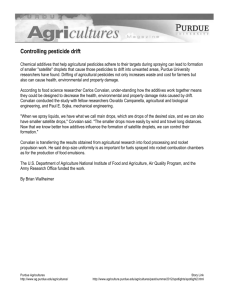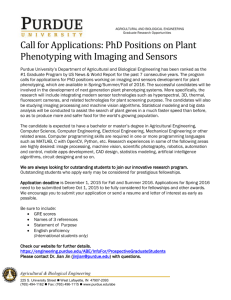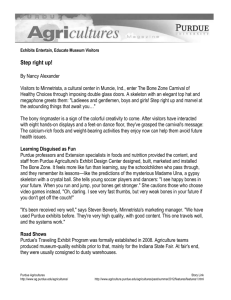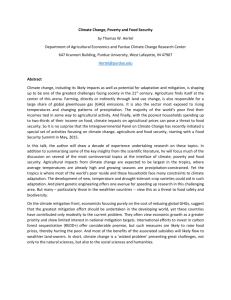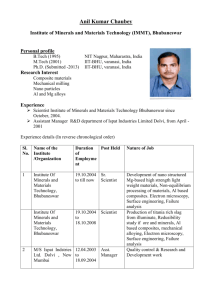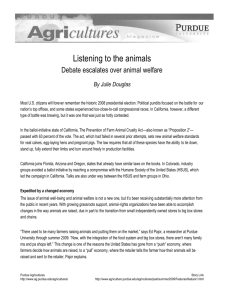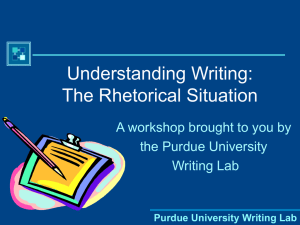Watershed Moments - Purdue Agriculture
advertisement
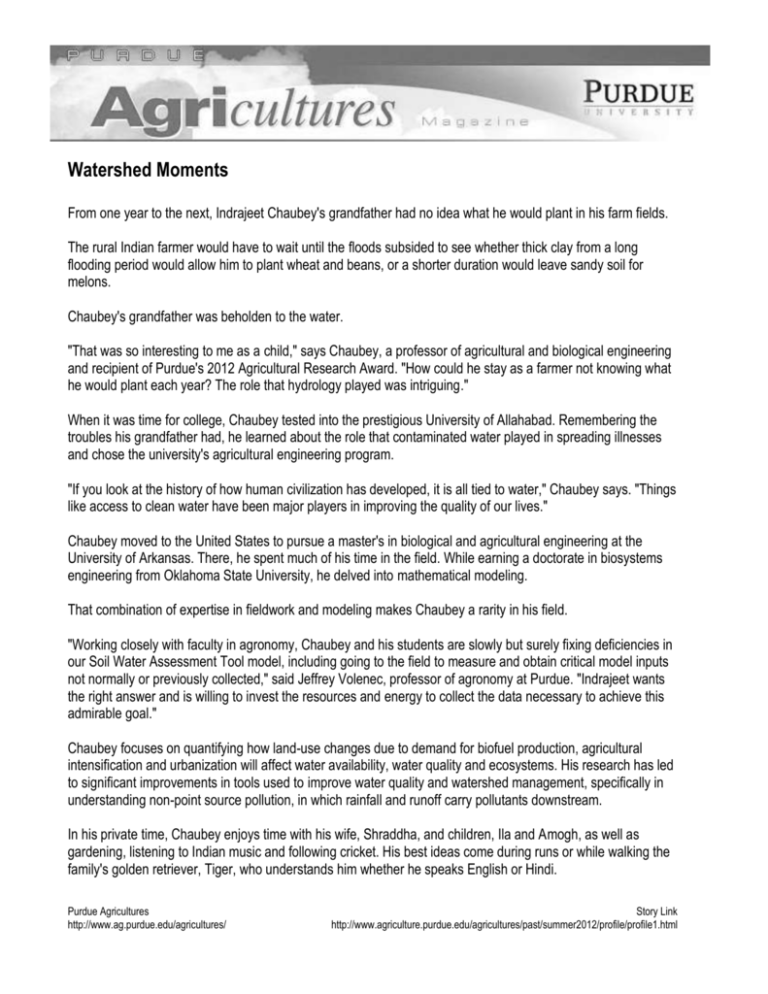
Watershed Moments From one year to the next, Indrajeet Chaubey's grandfather had no idea what he would plant in his farm fields. The rural Indian farmer would have to wait until the floods subsided to see whether thick clay from a long flooding period would allow him to plant wheat and beans, or a shorter duration would leave sandy soil for melons. Chaubey's grandfather was beholden to the water. "That was so interesting to me as a child," says Chaubey, a professor of agricultural and biological engineering and recipient of Purdue's 2012 Agricultural Research Award. "How could he stay as a farmer not knowing what he would plant each year? The role that hydrology played was intriguing." When it was time for college, Chaubey tested into the prestigious University of Allahabad. Remembering the troubles his grandfather had, he learned about the role that contaminated water played in spreading illnesses and chose the university's agricultural engineering program. "If you look at the history of how human civilization has developed, it is all tied to water," Chaubey says. "Things like access to clean water have been major players in improving the quality of our lives." Chaubey moved to the United States to pursue a master's in biological and agricultural engineering at the University of Arkansas. There, he spent much of his time in the field. While earning a doctorate in biosystems engineering from Oklahoma State University, he delved into mathematical modeling. That combination of expertise in fieldwork and modeling makes Chaubey a rarity in his field. "Working closely with faculty in agronomy, Chaubey and his students are slowly but surely fixing deficiencies in our Soil Water Assessment Tool model, including going to the field to measure and obtain critical model inputs not normally or previously collected," said Jeffrey Volenec, professor of agronomy at Purdue. "Indrajeet wants the right answer and is willing to invest the resources and energy to collect the data necessary to achieve this admirable goal." Chaubey focuses on quantifying how land-use changes due to demand for biofuel production, agricultural intensification and urbanization will affect water availability, water quality and ecosystems. His research has led to significant improvements in tools used to improve water quality and watershed management, specifically in understanding non-point source pollution, in which rainfall and runoff carry pollutants downstream. In his private time, Chaubey enjoys time with his wife, Shraddha, and children, Ila and Amogh, as well as gardening, listening to Indian music and following cricket. His best ideas come during runs or while walking the family's golden retriever, Tiger, who understands him whether he speaks English or Hindi. Purdue Agricultures http://www.ag.purdue.edu/agricultures/ Story Link http://www.agriculture.purdue.edu/agricultures/past/summer2012/profile/profile1.html PURDUE Agricultures "Once in a while, I do pause to look back at this journey," Chaubey says. "Considering its length, it feels very good to have come this far and be recognized as a researcher who has made an impact." By Brian Wallheimer Purdue Agricultures http://www.ag.purdue.edu/agricultures/ Story Link http://www.agriculture.purdue.edu/agricultures/past/summer2012/profile/profile1.html 2
